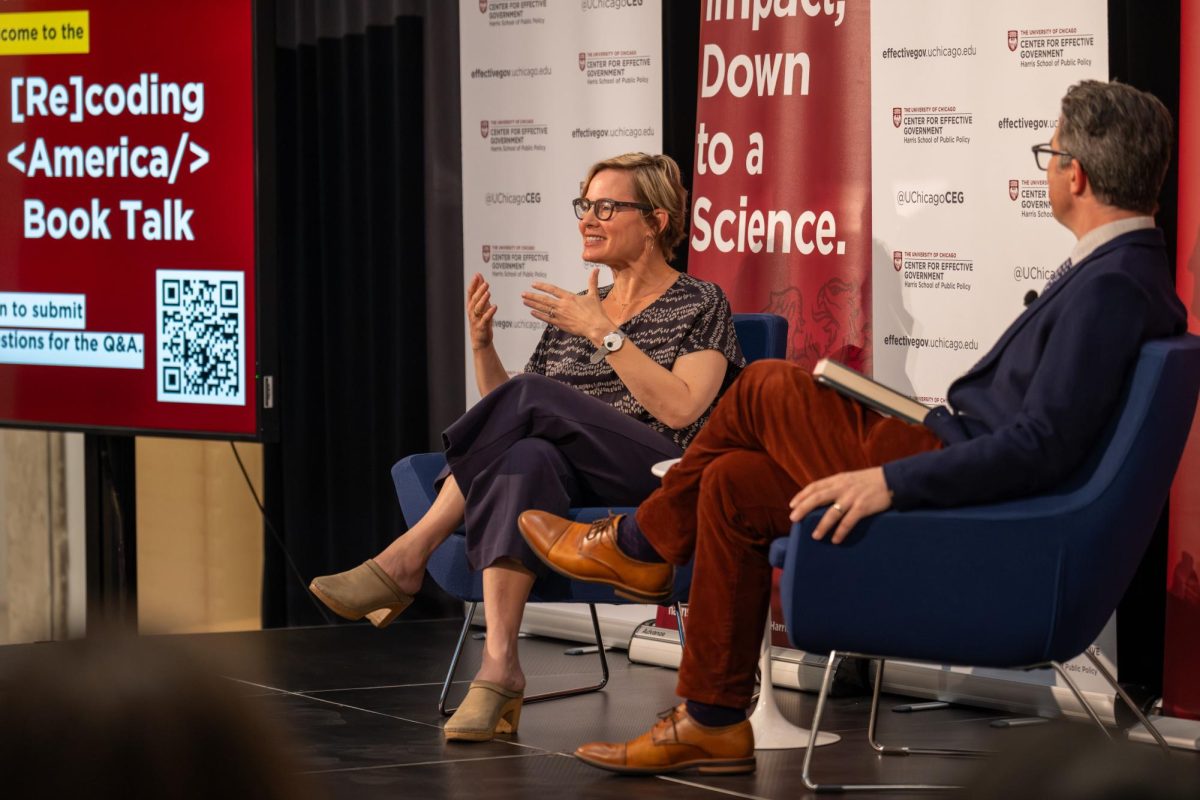Experts in the Israeli-Palestinian conflict discussed the viability of the one-state and two-state solutions in a panel held at the International House last night. The panelists included Mitchell Plitnick, formerly of Jewish Voice for Peace, Ali Abunimah, co-founder of Electronic Intifada, and Yousef Munayyer, from the Jerusalem Fund. It was moderated by Political Science Professor John Mearsheimer.
All three panelists concluded that the most important ingredient in any long-term solution, regardless of whether it be one-state or two-state, was the recognition of basic human rights and the establishment of equality for Palestinians.
“The problem is not the ‘Palestinian Problem,’ as it is sometimes called, and is not the ‘Refugee Problem’,” Abunimah said. “Palestinians are not the problem. Refugees are not the problem. The denial of their rights by Israel and by Zionism is the problem.”
Both Abunimah and Munayyer referred to Israel as an apartheid state because Israel’s pursuit of a fundamentally Jewish state with a majority of citizens being Jewish has allowed for the subjugation of Palestinians, they said.
“The state of Israel rules over about half as many Palestinians as it does Jews, and it treats them with different policies based on where they live and their backgrounds to ensure the maintenance of a Jewish majority,” Munayyer said. “This is a convoluted way of saying that this is an apartheid state.”
One of the key human rights violations that the panelists touched upon was the notion of a “demographic problem,” which refers to Israel’s concerns over the growing rate of non-Jewish Palestinians being born in Israel. Many feel that the growing Palestinian numbers threaten the Zionist notion of a Jewish state with a Jewish identity.
“This sort of demographic obsession that translates into state policies that involve human rights abuses is the same sort of scary outcome of nationalism that the last century taught us is so terrifying,” Munayyer said.
Munayyer, who is a Palestinian citizen of Israel, remarked that it is unlikely that he would have met his wife, who lived 45 minutes away in the Israeli-occupied West Bank, if they hadn’t both left for America, because of the active efforts to prevent Palestinian-Israeli citizens from marrying Palestinians from the West Bank. The reason behind this policy, as identified by Munayyer, is to prevent “demographic spillover.”
When the panelists took questions from the audience, Rebecca Abrams, a member of the Chicago Friends of Israel, called into question comments made by Abunimah in regards to his rejection of Israel as an exclusively Jewish state.
“I’m vehemently opposed to violating the rights of Palestinians so that Jews can maintain an unjust monopoly on power. Just as I’m absolutely against whites in South Africa maintaining an unjust monopoly on power, I’m absolutely against mass incarceration in the United States, I’m absolutely against all systems that maintain the unjust power of one ethno-religious or racial group over another,” Abunimah responded as several in the crowd applauded.
A previous lecture on the Israeli-Palestinian conflict held early last week was marked by protests from the audience. In addition to picketing, some of the protesters faced their chairs away from the speaker, Israeli-American Law Professor Amos Guiora from the University of Utah, in the middle of the talk, and one student continuously interrupted him until being escorted out of the room. In contrast, this lecture provoked dissent from the audience but no formal protest.









